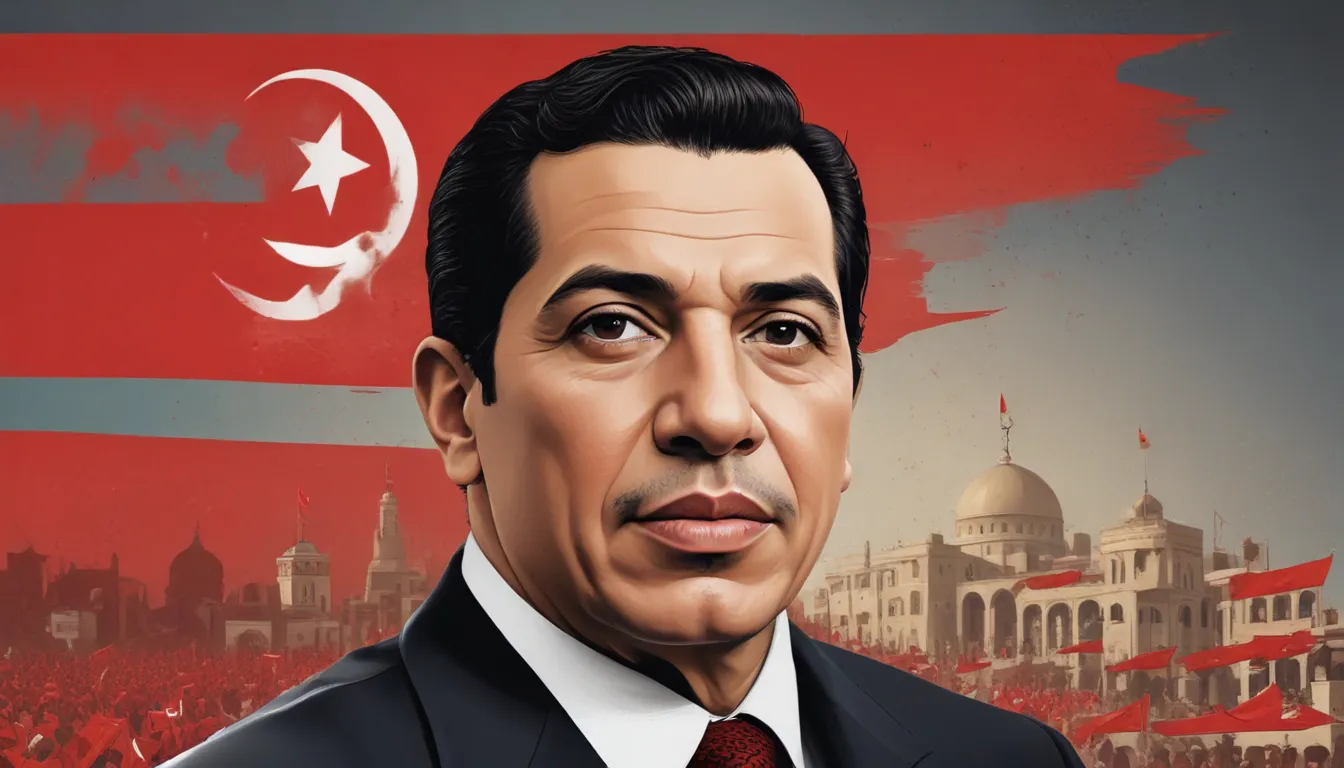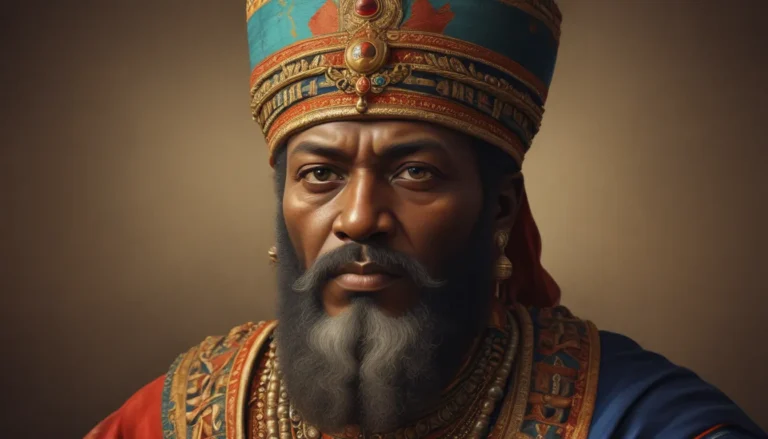The images in our articles may not match the content exactly. They are used to grab your attention, not to show the exact details in the text. The images complement the text but do not replace it.
Zine El Abidine Ben Ali, the former President of Tunisia, left a lasting impact on the country during his 23-year rule from 1987 to 2011. His presidency was characterized by economic reforms, strict media control, and allegations of human rights abuses. Despite his efforts to promote women’s rights, his regime faced widespread criticism and controversy, ultimately leading to his ousting during the Tunisian Revolution, which ignited the Arab Spring.
Zine El Abidine Ben Ali: A President’s Journey
Zine El Abidine Ben Ali rose to power in Tunisia through a bloodless coup in 1987, overthrowing President Habib Bourguiba. His tenure as President was marked by a focus on economic reforms, designed to modernize Tunisia’s economy and attract foreign investment. However, his strict control over the media and reports of human rights abuses tarnished his legacy.
The Controversial Reign of Ben Ali
Ben Ali’s regime was known for its political repression, with allegations of torture, arbitrary arrests, and restrictions on political freedoms. Despite some efforts to promote women’s rights through increased access to education and employment, his rule was heavily reliant on security forces to maintain control, stifling any dissent or protest.
The Downfall of Ben Ali and the Tunisian Revolution
In 2011, a wave of protests erupted in Tunisia, leading to Ben Ali’s exile in Saudi Arabia. The ousting of Ben Ali marked the beginning of Tunisia’s transition to democracy, inspiring similar uprisings across the Middle East during the Arab Spring. While his reign brought economic stability, it came at the cost of limited political freedoms and high levels of corruption.
The Legacy of Zine El Abidine Ben Ali
Ben Ali’s legacy remains a topic of debate in Tunisia, shaping the country’s political landscape to this day. While his regime brought some economic progress, his authoritarian rule and corruption continue to be remembered. Understanding the complexities of his presidency is crucial in grasping the lasting impact he had on Tunisia and its people.
Exploring the Facts About Zine El Abidine Ben Ali
- Ben Ali served as Tunisia’s President for 23 years, known for economic reforms and media control.
- His rule was marked by political repression, human rights abuses, and a lavish lifestyle.
- Ben Ali’s exile following the Tunisian Revolution sparked the Arab Spring and Tunisia’s transition to democracy.
- Despite his promotion of women’s rights, his legacy remains controversial in Tunisia.
- Ben Ali’s reliance on security forces and crackdown on dissent shaped his authoritarian regime.
Conclusion: A Complex Figure in Tunisian History
Zine El Abidine Ben Ali’s presidency was a mix of economic progress and political repression, culminating in his exile during the Tunisian Revolution. His legacy, while divisive, highlights the complexities of power and the ongoing quest for freedom and justice in Tunisia. Understanding his impact on the country is essential in grasping the dynamics of global politics and the enduring effects of authoritarian regimes.
Through exploring the captivating facts about Zine El Abidine Ben Ali, we gain a deeper understanding of the man behind the controversy and his significant role in shaping Tunisian history. As we reflect on his reign, we are reminded of the power dynamics at play in politics and the importance of upholding democracy and human rights in the face of authoritarian rule.
FAQs about Zine El Abidine Ben Ali
- Who was Zine El Abidine Ben Ali?
-
Zine El Abidine Ben Ali was the President of Tunisia from 1987 to 2011, known for his authoritarian rule and economic reforms.
-
How long was Ben Ali in power?
-
Ben Ali ruled Tunisia for over 23 years, making him the longest-serving president in the country’s history.
-
What were some of Ben Ali’s major achievements?
-
Ben Ali focused on modernizing Tunisia’s economy, improving education, and attracting foreign investment during his presidency.
-
Why is Ben Ali controversial?
-
Ben Ali’s regime was criticized for political repression, human rights abuses, and allegations of corruption, leading to his ousting during the Tunisian Revolution.
-
What led to Ben Ali’s downfall?
-
Widespread protests in Tunisia in 2011, fueled by economic inequality and political repression, forced Ben Ali to flee to Saudi Arabia, marking the end of his presidency.
-
What is the legacy of Ben Ali?
-
Ben Ali’s legacy is a mix of economic progress and political repression, shaping Tunisia’s political landscape and inspiring the Arab Spring across the Middle East.
-
How did Ben Ali’s rule impact Tunisia?
- Ben Ali’s authoritarian regime brought economic stability but at the cost of limited political freedoms and high levels of corruption, leaving a lasting impact on the country.
In exploring the intricate history of Zine El Abidine Ben Ali, we gain valuable insights into the complexities of power, democracy, and justice in the context of Tunisian politics. His presidency serves as a stark reminder of the need to uphold human rights and foster democratic principles in the face of authoritarian rule. As we delve into the legacy of Ben Ali, we are confronted with the enduring quest for freedom and equality in the pursuit of a more just and equitable society.






